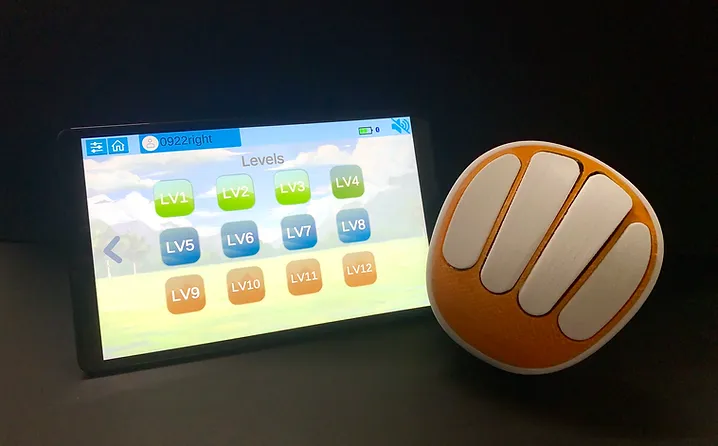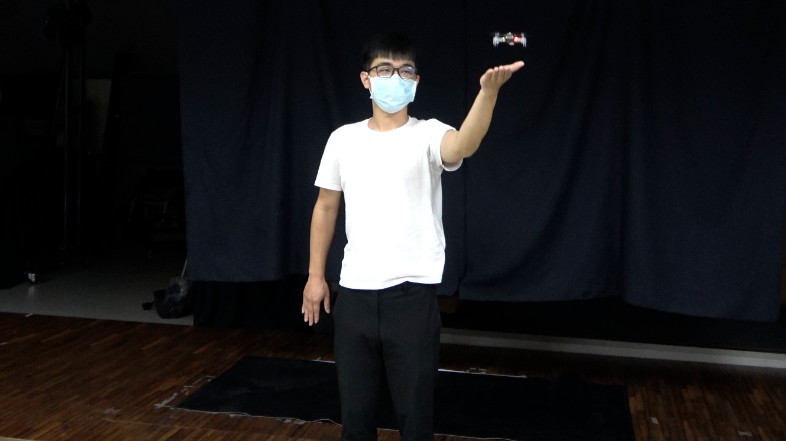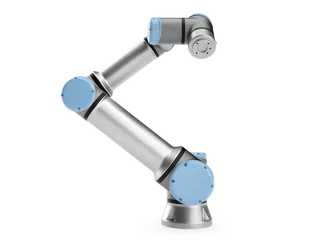
Hand Training Device for Brain Activation
Hands play critical roles in our daily activities. Moreover, research suggests a strong relationship between cognition and grip force as well as hand function. Hence, this study focuses on understanding the relationship between hand function—specifically finger force and dexterity—and cognitive function. Recognizing the potential influence on individuals’ independence, the researchers aim to create a personalized home-based training system. This system incorporates a handheld device with interactive exergames, integrating professional rehabilitation programs and artificial intelligence algorithms. The objective is to offer personalized training programs for individuals with cognitive impairments, ultimately reducing the impact of dementia on both patients and their families.
Drone Based Exercise System
Mobility issues and cognitive decline are major problems experienced by older adults. The rising prevalence of dementia in Taiwan and the impending “super-aged society” necessitate proactive measures. This study aims to explore the potential of Human-Drone Interaction Systems (HDIs) to enhance visuospatial perception and cognitive functions. The research will focus on integrating visual stimuli into HDIs for eye-hand coordination training and incorporating real-time interactive visual feedback within HDIs for guiding traditional Chinese martial arts exercises. The chosen exercises aim to improve visual perception, motor coordination, visual-motor integration, and sensory-motor control. The study aligns with the broader goal of developing effective interventions for cognitive well-being in older adults and those at risk of cognitive decline by merging technological sophistication with cognitive training objectives.


Robotic Arm Rehabilitation System
The human hand, especially opposition of the thumb, is the most important evolution that has given us unique functionality and creativity. This study focuses on the significant role of the thumb in daily activities and the challenges faced by individuals, particularly stroke survivors, who experience a loss of thumb function. The study proposes the application of a multiple degree of freedom robot arm in thumb rehabilitation. This innovative technology, coupled with a sophisticated algorithm, aims to enhance therapy effectiveness and coherence.

Address : No. 1, Daxue Rd., East Dist., Tainan City 701 , Taiwan (R.O.C.)
Tel : (06) 2757575-63422
FAX : (06) 2343270
